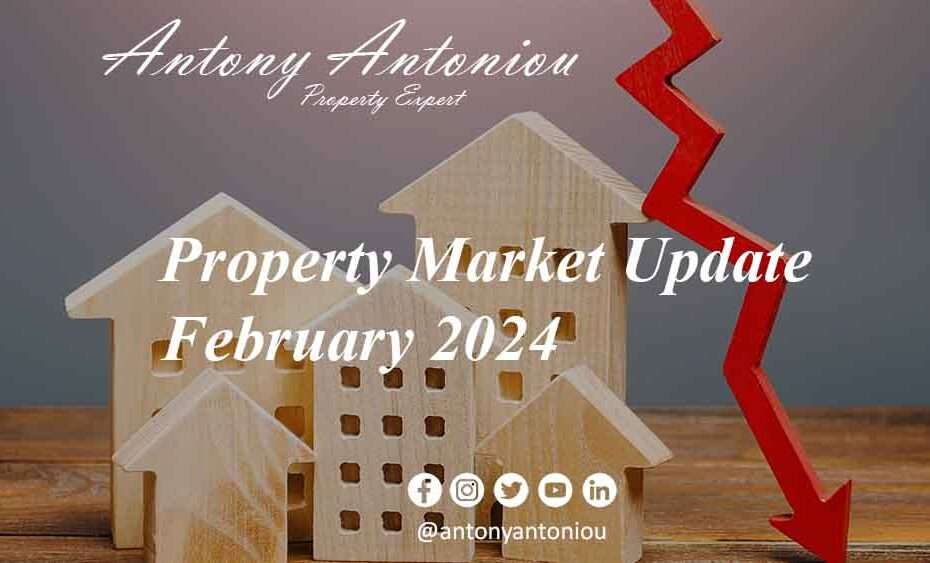Property Market Update – February 2024
The UK Housing Market: House Prices Continue to Fall for the Third Consecutive Month
The UK housing market is currently experiencing a sharp decline, with house prices falling for the third consecutive month. According to the Office for National Statistics (ONS), house prices dropped by 0.3% between January and February. This is in addition to the fact that the average house price grew by only 5.5% in the year to February, which is significantly lower than January’s figure of 6.5%. This is the smallest increase since October 2020.
Current State of the UK Housing Market
Despite the average price of a house currently standing at £288,000, which is £16,000 higher than the previous year, it is still £5,000 below the peak in November. Sarah Coles, the head of personal finance at Hargreaves Lansdown, stated that “average house prices were on the slide for the third consecutive month, and the average is now down £5,000 from the peak in November. The descent has picked up pace very slightly, and we can expect more falls from here – but there is still the glimmer of hope for a soft landing.”
The data also shows that flats are seeing far slower price growth than other property types, at just 2.1%. In London, prices have reached £532,000, but have only increased by 2.9% in a year. Meanwhile, the North East has the lowest average house price of £160,000, with prices having increased by 7.6% in a year.
Ms Frances McDonald, the director of residential research at Savills, highlighted that “annual house price growth across the mainstream UK housing markets continued to slow in February.” She also stated that “lower value markets that are less constrained by affordability, such as the West Midlands and the North East, were the top performers, while London recorded lower levels of annual price growth.”
Challenges to the UK Housing Market
Nigel Purves, the co-founder and chief executive of Wayhome, welcomed the marginal reduction in the cost of homeownership, but he also noted that it’s still difficult for many people to afford to buy a house. He said, “This issue has only worsened as the cost of borrowing has climbed in line with interest rates, and we expect this additional financial pressure to further dampen market sentiment going forward.”
The UK housing market is facing a number of challenges that are impacting the market. Rising interest rates and borrowing costs are making it more difficult for people to afford to buy a house. The ongoing economic uncertainty caused by Brexit has also impacted the market, as potential buyers remain cautious.
What Does the Future Hold for the UK Housing Market?
It remains to be seen how long the UK housing market will continue to struggle. While there is some hope for a soft landing, many experts predict that house prices will continue to fall in the coming months. The challenges posed by rising interest rates and borrowing costs, along with the ongoing economic uncertainty, are likely to continue to impact the market.
FAQs
- Why are house prices falling in the UK? House prices are falling in the UK due to a number of factors, including rising interest rates and borrowing costs, as well as ongoing economic uncertainty caused by Brexit.
- How long is the UK housing market likely to struggle? It is difficult to predict how long the UK housing market will continue to struggle. While there is some hope for a soft landing, many experts predict that house prices will continue to fall in the coming months.
- Which areas of the UK have been worst affected by falling house prices? Flats are seeing far slower price growth than other property types, at

